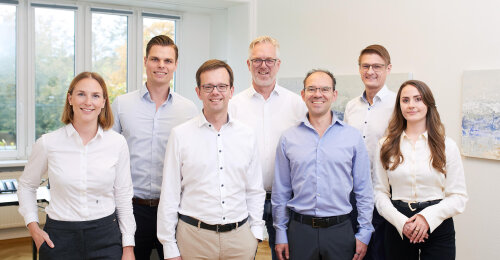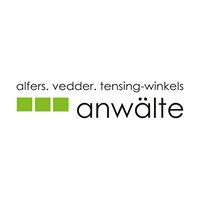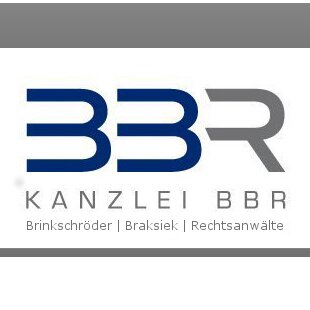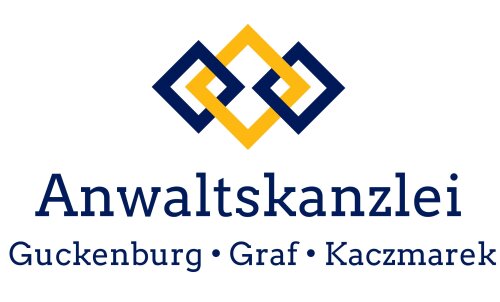Best Housing, Construction & Development Lawyers in Germany
Share your needs with us, get contacted by law firms.
Free. Takes 2 min.
Free Guide to Hiring a Real Estate Lawyer
Or refine your search by selecting a city:
List of the best lawyers in Germany
About Housing, Construction & Development Law in Germany
The field of Housing, Construction & Development law in Germany is a comprehensive area that encompasses various aspects of real estate, including the construction of buildings, urban development, property management, and tenancy laws. It integrates legal issues related to infrastructure projects, zoning regulations, environmental impact, and contractual agreements between parties involved in real estate ventures. The legal framework ensures that the construction projects meet safety standards, environmental requirements, and that there is compliance with urban planning policies. It also addresses landlord-tenant relationships, emphasizing regulations to protect the rights of both parties efficiently.
Why You May Need a Lawyer
There are multiple scenarios where individuals or businesses might require legal help in the field of Housing, Construction & Development in Germany:
- Contract Disputes: Disagreements over construction contracts, purchase agreements, or lease agreements can arise, requiring legal expertise to mediate or resolve issues.
- Regulatory Compliance: Navigating the complex web of zoning, permitting, and environmental laws can be challenging without legal guidance.
- Tenant-Landlord Issues: Conflicts such as rental disputes, lease violations, or eviction proceedings might necessitate legal intervention.
- Building Defects: Addressing defects or construction failures often involves legal claims that require expert advice.
- Real Estate Development: Ensuring all legal bases are covered during planning, financing, and executing development projects.
Local Laws Overview
Germany's legal system provides a robust framework for Housing, Construction & Development, which includes key legislation such as the Baugesetzbuch (BauGB), Mietrechtsreformgesetz (Tenancy Law Reform Act), and the Energiesparverordnung (EnEV), among others. Important aspects include:
- Zoning and Urban Planning: Zoning laws regulate land use, determining where residential, commercial, or industrial activities can take place. Local municipalities play a significant role in planning decisions.
- Construction Standards: The DIN standards and the Bauordnung (Building Code) set construction protocols to ensure safety and quality in building practice.
- Tenancy Law: Designed to protect tenants, laws limit rent increases and outline fair eviction processes, contributing to tenant security.
- Environmental Regulations: Legislation mandates sustainable building practices and energy efficiency to minimize environmental impact.
Frequently Asked Questions
1. What are the steps to getting a building permit in Germany?
Generally, the process involves submitting detailed architectural plans to the local building authority, ensuring compliance with zoning and safety regulations, and obtaining approvals from relevant departments.
2. Can a landlord randomly increase rent in Germany?
No, rent increases in Germany must comply with legal limits and are typically tied to the local comparative rent index. Notice and justification must be provided to the tenant.
3. How are tenant rights protected under German law?
Tenants enjoy protection under various statutes, which regulate rent increases, eviction processes, and living condition standards to ensure fair treatment.
4. What is a Mietpreisbremse?
Mietpreisbremse is a "rental price brake" law designed to control rental prices in tight housing markets, limiting the extent of rent increases upon new tenancy.
5. Who is responsible for property defects post-purchase?
Liability depends on the nature of the defect and the agreements made in the sales contract. Sellers might be liable for undisclosed defects, particularly within a stipulated period post-purchase.
6. How long can it take to resolve a construction dispute?
The resolution time varies based on dispute complexity, the chosen process (mediation, arbitration, or court proceedings), and the jurisdiction's efficiency.
7. What are essential documents for property purchase in Germany?
Key documents include the sales contract, land register extract, building permits, and, if applicable, financing agreements.
8. Can international investors freely purchase property in Germany?
Yes, Germany does not impose restrictions on foreign nationals purchasing property; however, they must comply with procedures similar to those for local investors.
9. What environmental considerations are important in German construction projects?
Projects must comply with regulations such as the Energy Saving Ordinance (EnEV) and ensure minimal environmental disruption and sustainability practices.
10. Are mediation and arbitration common in construction disputes?
Yes, these alternative dispute resolution methods are frequently employed to reduce costs and time in resolving construction-related conflicts.
Additional Resources
For more information or assistance, you can turn to the following resources:
- The Federal Ministry for Housing, Urban Development and Building for policies and regulations.
- The German Bar Association for legal referrals.
- Local Consumers Associations for advice on tenancy laws.
- The Federal Institute for Research on Building, Urban Affairs, and Spatial Development for research and reports.
Next Steps
If you need legal assistance in Housing, Construction & Development, consider taking these steps:
- Identify the specific area or issue where you need help.
- Gather relevant documents and information related to your case.
- Consult with a specialized lawyer or legal firm experienced in German real estate law.
- Consider initial consultations and compare lawyer services to find the best fit for your needs.
Taking informed and timely actions with the help of a legal professional can significantly enhance outcomes in disputes or transactions related to housing, construction, or development.
Lawzana helps you find the best lawyers and law firms in Germany through a curated and pre-screened list of qualified legal professionals. Our platform offers rankings and detailed profiles of attorneys and law firms, allowing you to compare based on practice areas, including Housing, Construction & Development, experience, and client feedback.
Each profile includes a description of the firm's areas of practice, client reviews, team members and partners, year of establishment, spoken languages, office locations, contact information, social media presence, and any published articles or resources. Most firms on our platform speak English and are experienced in both local and international legal matters.
Get a quote from top-rated law firms in Germany — quickly, securely, and without unnecessary hassle.
Disclaimer:
The information provided on this page is for general informational purposes only and does not constitute legal advice. While we strive to ensure the accuracy and relevance of the content, legal information may change over time, and interpretations of the law can vary. You should always consult with a qualified legal professional for advice specific to your situation.
We disclaim all liability for actions taken or not taken based on the content of this page. If you believe any information is incorrect or outdated, please contact us, and we will review and update it where appropriate.
Browse housing, construction & development law firms by city in Germany
Refine your search by selecting a city.

















